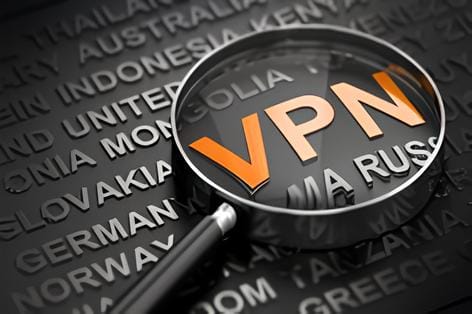Can VPNs Be Tracked By The Government?
In an era marked by heightened concerns about digital privacy and government surveillance, VPN usage has surged as people attempt to hide their online activities from prying eyes.

VPN usage has increased in an era characterized by heightened fears about government monitoring and digital privacy as people try to shield their online activity from prying eyes. Prized for their capacity to conceal users' IP addresses and encrypt internet data, VPNs provide some privacy in an increasingly surveilled digital environment. But as the argument over VPNs' effectiveness in blocking government monitoring heats up, it's becoming more and more unclear how much of a privacy net these networks actually provide.
Written by Sherry
Contact us via matia4441298@gmail.com
How best anonymous VPN is ensured
Knowledge of VPN functionality and the techniques via which they ostensibly protect user privacy is fundamental to the topic. VPNs work by encrypting data and directing user traffic via secure servers to shield it from being intercepted by ISPs, hackers, and governmental organizations, among others. VPNs provide an anonymous online browsing experience by hiding users' IP addresses and obscuring their online activities. This creates a barrier against monitoring.
VPNs are helpful, but not perfect
Although VPNs provide an additional degree of security against outside attacks, worries about their vulnerability to government tracking still exist. Governments have a great deal of authority to monitor online activity and force VPN companies to provide customer data in places where internet restrictions are strict. This calls into question the effectiveness of VPN in protecting user privacy as well as the degree to which governments can get around encryption to monitor VPN traffic.
Moreover, the topic becomes more convoluted due to the widespread availability of free VPN services. Free VPN services purport to give users with an affordable way to protect their privacy, but in reality, they frequently profit from user data or interact with government organizations, jeopardizing users' anonymity and damaging VPN networks. In addition, the fact that VPN companies keep user records on file for internal auditing or compliance reasons creates a possible opening for governments to monitor user behavior.
Despite these difficulties, VPN proponents contend that the risk of government tracking may be reduced by carefully choosing reliable providers and adhering to best practices. People may strengthen their online privacy protection and digital defenses against surveillance by selecting VPN services that have strong privacy rules and a dedication to user anonymity. Navigating the complicated terrain of digital monitoring also requires being up-to-date on developing risks and fighting for the right to privacy.
Bottom Line
The efficiency of VPNs in protecting users from government tracking is not 100%, even if they are a useful tool for maintaining online security and privacy. The interaction of encryption, governmental monitoring, and regulatory control emphasizes the importance of exercising caution and making well-informed VPN service selections. Maintaining personal autonomy and online freedom requires people to prioritize privacy rights and take proactive actions as they work to protect their digital privacy in an era of ubiquitous surveillance.